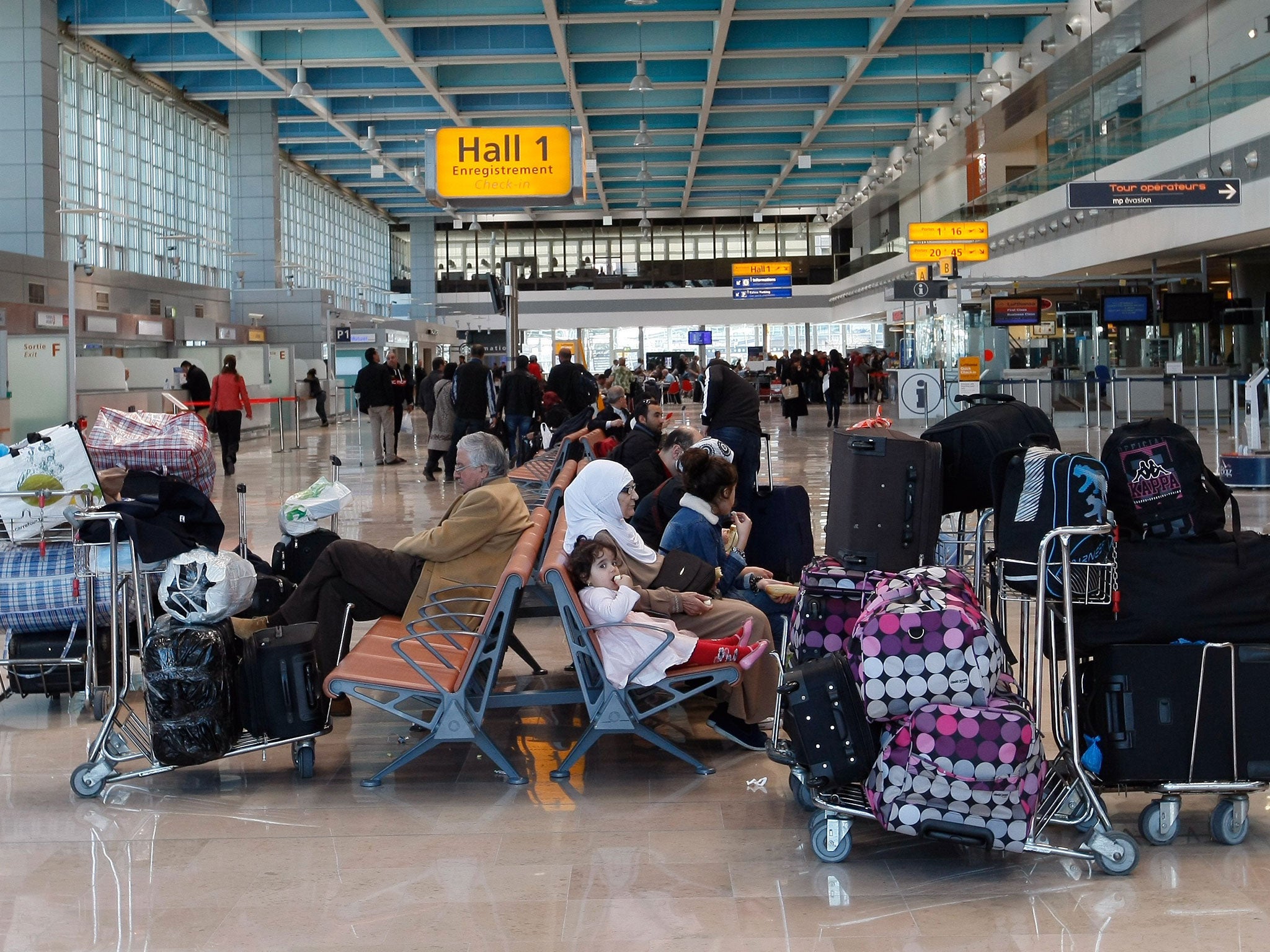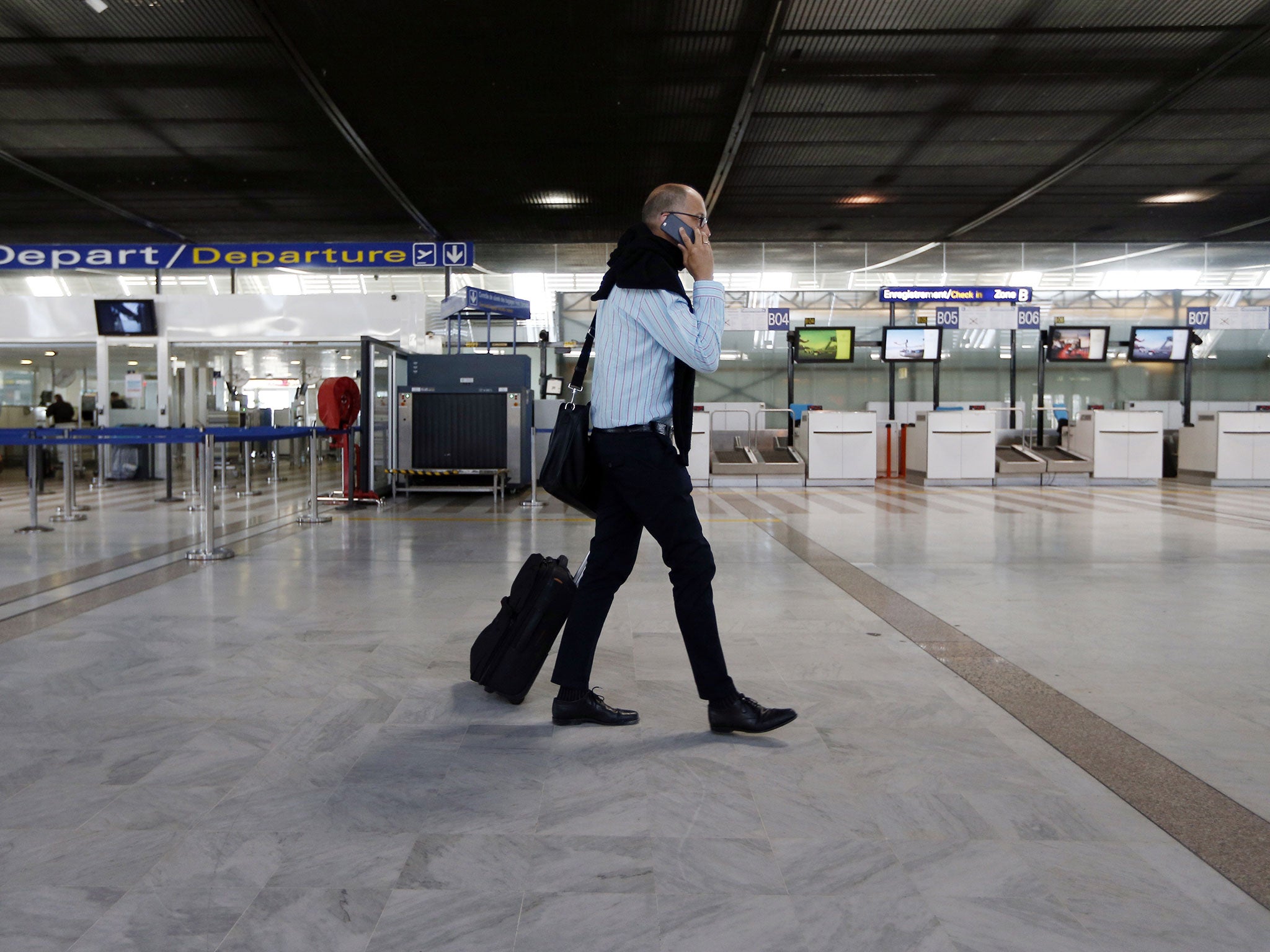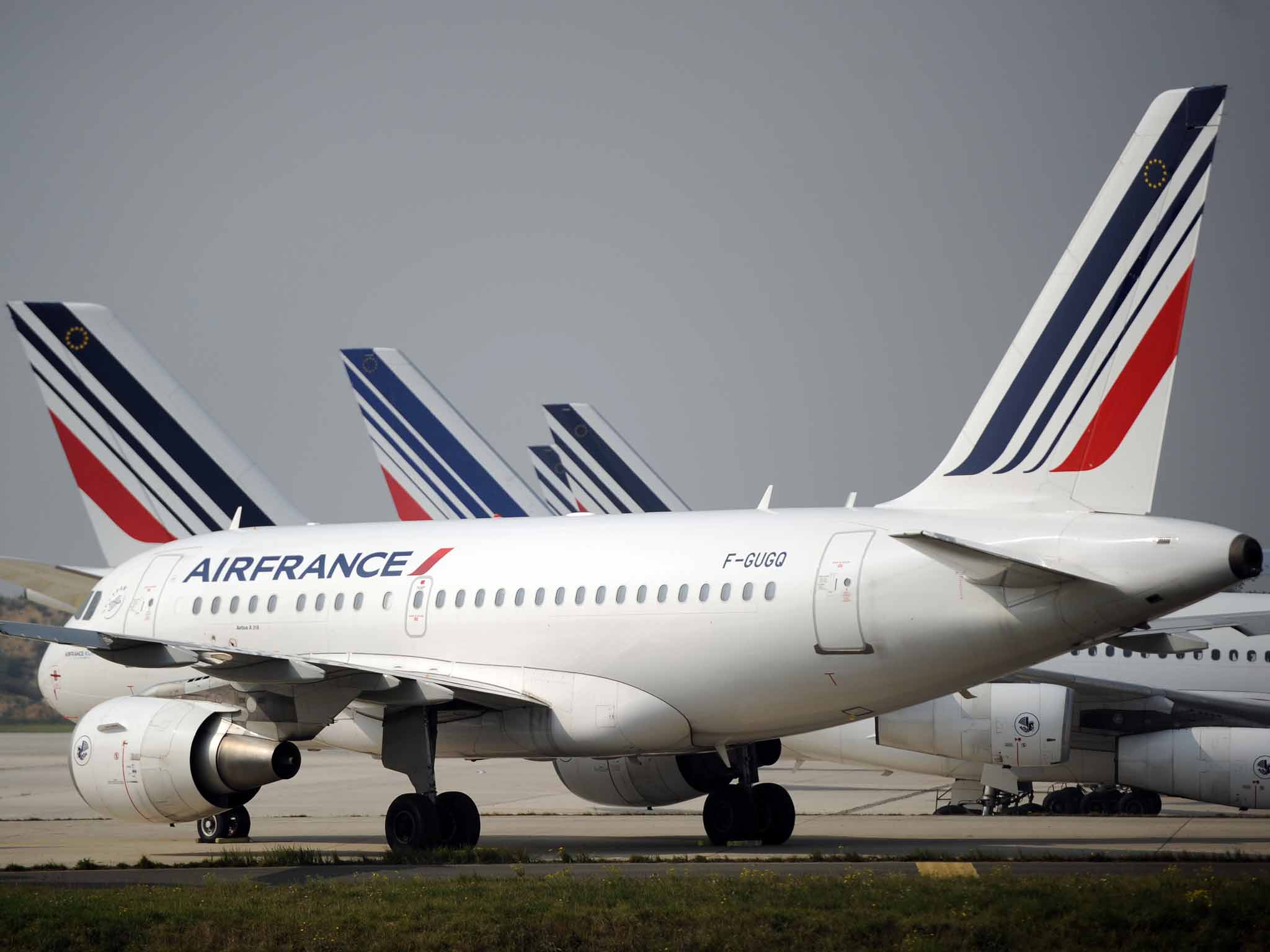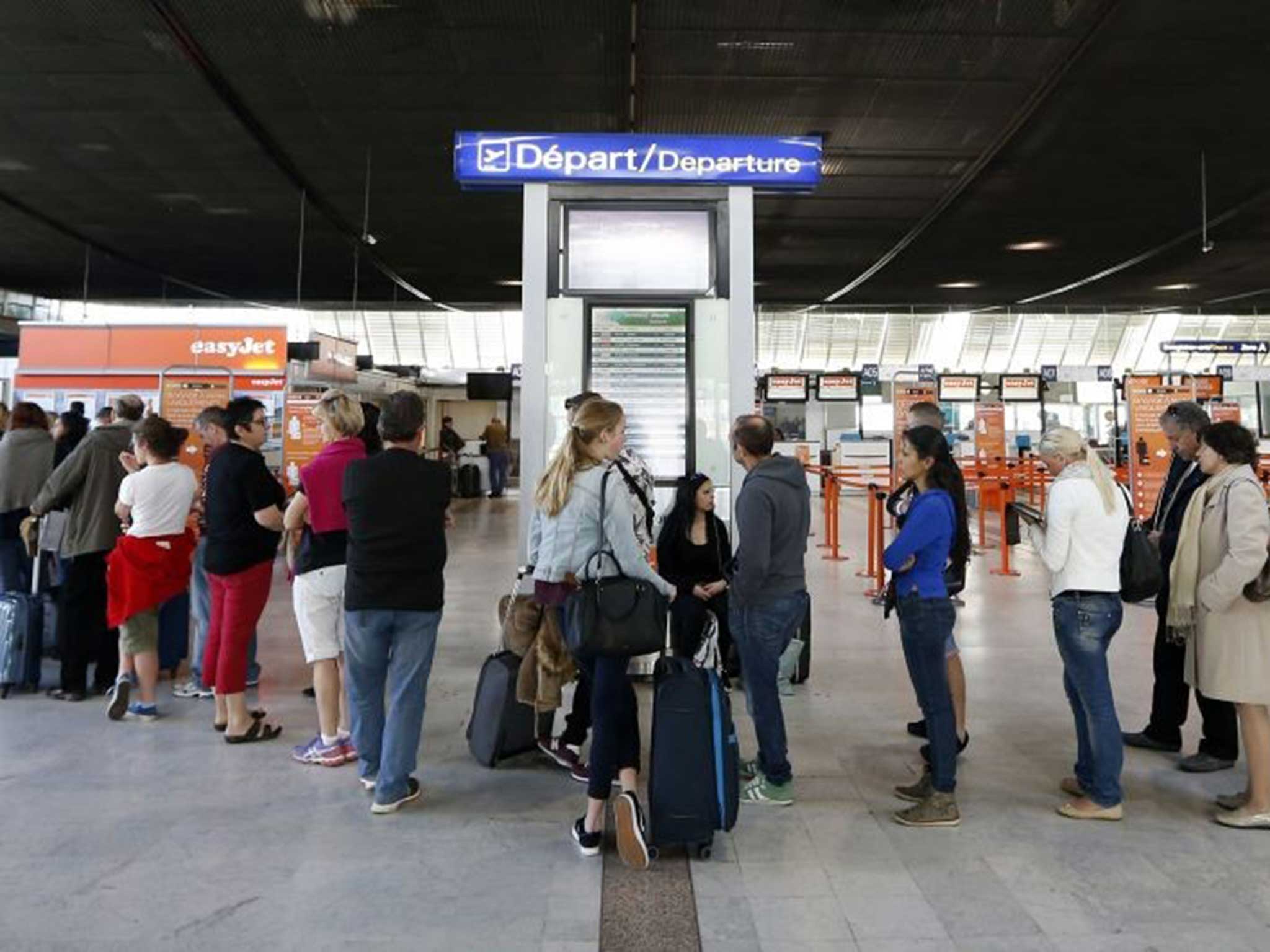French air-traffic strike: What are the strikes about and can passengers get a refund? Everything you need to know about the dispute
What is the likely impact if the strikes do go ahead?

Tens of thousands of British travellers could face disruption in the coming weeks. After a 48-hour strike on 8-9 April, French air-traffic controllers planned a three-day stoppage beginning on 16 April. At the end of a day of negotiation, the union announced via its Facebook account that this threat had been lifted - but it insisted a four-day strike from 29 April to 2 May could still go ahead.
What are the strikes about?
The largest air-traffic control union, the SNCTA, is in a long-running dispute with the French government about plans to raise the retirement age from 57 to 59, and to restructure air-traffic control. The union said the planned changes could lead to “A traffic overload that may interfere with [controllers’] ability to handle flights safely.”
If the strikes do go ahead, what is the likely impact?
At around noon the day before each strike day, the DGAC announced how much capacity non-striking controllers can handle, and orders airlines serving France to reduce capacity accordingly. Usually about half the flights are cancelled.
France is the country that controls the most flights in Europe, with an average of 8,000 a day. From UK airports, the vast majority of flights to and from southern Europe travel through French airspace if they are taking the most direct track. From London alone, flights anywhere from Cyprus and Greece in the east to the Canaries and the Azores in the west is usually route through French airspace. Some of those flights can relatively easily be diverted to avoid France, but that adds to pressure on nearby countries’ airspace. Eurocontrol in Brussels will declare how much capacity the system can handle. Those flights that are allowed may have to take a circuitous track, adding an hour or more to journey times, with resulting knock-on delays.
Which airlines tend to be worst affected?
I believe Air France is the hardest-hit airline, though since it refuses to tell The Independent how many flights it has cancelled I cannot say for sure. The next two airlines are easyJet - France’s second-largest airline - with an average of about 300 flights for each day of industrial action, and Ryanair with an average of 250 flights. British Airways and Flybe each tend to make a couple of dozen cancellations.
I am booked to travel on one of the strike days. What are my options?
At present airlines are hoping the strikes will be called off, and so most passengers who want to transfer to a date outside the strike periods will need to pay for the privilege. If the stoppages go ahead, they may relax the rules - for example during the first strike, British Airways allowed passengers to switch free of charge even if their booked flight was expected to be operated. Among the low-cost airlines, this option is normally offered only when a flight is cancelled.

My flight has been cancelled, but the airline has a departure on the same route tomorrow. Why can’t they just re-book me on that?
Because once a flight has been cancelled, the passengers booked on it go to the back of the queue: people who were fortunate enough to buy a flight that does go ahead will travel as planned. Given that the average “load factor” - the percentage of seats occupied on a flight - is 90 per cent on some airlines - on a 180-passenger jet, that means typically only 18 spare seats for the 162 disappointed travellers.
My flight has been cancelled, and I no longer want to travel. Do I get a refund?
Yes. If your outbound flight is cancelled, and you decide not to travel. You can opt to be reimbursed to your original payment card for both legs of the journey - so long as they are with the same airline. If, though, you booked outbound with easyJet and inbound with Ryanair, and the latter flight goes ahead, you cannot claim a refund - though your travel insurance may possibly pay out.
My flight has been cancelled, but I still need to travel. What are my options?
The airline will invite you to rebook on one of its future services. If you have no time pressure, the easiest option is to re-book on the first available flight and, if you are waiting to come home, enjoy the airline’s hospitality. All EU airlines, and any carrier departing from a European airport, are obliged to provide you with meals and accommodation until you are able to travel.

But I am in a hurry to get home…
Then life is trickier. The European rules that govern passengers’ rights say that a passenger whose flight is cancelled is entitled to “re-routing, under comparable transport conditions, to their final destination at the earliest opportunity”. Passengers have successfully argued in the past that this should include the option of travelling with a rival company. However, that typically works when the airline cancels a couple of weeks ahead, and you have time to argue the case.
When a strike causes tens of thousands of passengers to have their travel plans wrecked, it is most unlikely that any airline is equipped to discuss the niceties of whether a train journey from Geneva to Manchester, costing perhaps £300, would be a reasonable alternative to a two-day wait for a flight. You might imagine that the airlines would be happy to reward - or at least recompense - passengers who are prepared to display initiative. But experience suggests that if you remove yourself from an airline’s responsibility, then it will be difficult to claim more than a refund of your original fare. It is possible that you might be able to get compensation for out-of-pocket costs from travel insurance. But before you start rebooking, be aware that you may be spending hundreds of pounds in irrecoverable expenses.
How can airlines justify raising their prices for a few remaining seats to astronomical levels when other airlines are having to cancel flights?
Supply and demand. Most airlines plan their pricing so that some seats are still available in the final few days before departure - on the basis that they will be able to sell them to people who desperately need to travel at almost any price. There is nothing immoral about this, and indeed by keeping a few seats back for sale at high fares the airlines are providing a valuable service.
My outbound flight to Nice is not on a strike day, but my inbound flight is. I can’t take the risk that I won’t be able to get back on schedule. What can I do?
At present you have few options. If you try to change your trip dates or get a refund, the airline is likely to say, “We fully intend to operate your flights, and so normal conditions apply”. It is possible that this may change - British Airways allowed some flexibility for the last strike - but otherwise you will have to take a chance. One advantage of being in Nice is that a terrestrial option is available, by train via Paris or Lille to the UK, so if you find out the day before that your flight is cancelled (which is the likely scenario) you can - if you have a robust credit limit on your card - buy a one-way rail ticket.

We are booked to fly to Barcelona on a strike day to begin a cruise. If our flight is cancelled and we miss the cruise, will we get compensation?
That depends on whether you have booked a package - flights and cruise in the same transaction - or bought the items individually. If it’s a package, then the tour operator (the travel company that sold it to you) will need to do whatever is necessary to get you to the cruise - for example by flying you out early and putting you up in a hotel. But if the flight and the cruise were bought separately, then there is no such obligation. The airline is required to get you to Barcelona as expeditiously as it can, but if that is too late for your cruise it has no further responsibility.
I have a week’s package holiday booked with a charter flight that departs only once a week. If it’s cancelled, do I lose the whole holiday?
In theory, yes - and you will get a full refund if that happens. But in practice charter flights tend to operate, even with long delays. So I would be very surprised if you did not get there.
We are hoping to fly to Spain in June. Is it likely that the French air-traffic controllers will be on strike? We’re a bit worried about booking.
Who knows? The French air-traffic controllers are only one of many groups of workers with grievances. Trades unions understandably flex their industrial-action muscles at times when they will have maximum impact. But if you look back over a number of years, the chances of a flight being disrupted is extremely low.
Do the European rules on cash compensation for delays and cancellations apply?
No. A third-party strike counts as “extraordinary circumstances,” meaning the airline has no obligation to pay compensation. But all European airlines still have a duty of care. Some travellers have told us that their airline has sought to limit the accommodation and meals to two nights - which is a misrepresentation of the law. Please let us know if the same has happened to you.
Join our commenting forum
Join thought-provoking conversations, follow other Independent readers and see their replies
Comments
Bookmark popover
Removed from bookmarks